Filter by
# Debug Box
/var/www/htdocs/pustaka-digital/lib/SearchEngine/SearchBiblioEngine.php:688 "Search Engine Debug 🔎 🪲"
Engine Type ⚙️: "SLiMS\SearchEngine\SearchBiblioEngine"
SQL ⚙️: array:2 [ "count" => "select count(sb.biblio_id) from search_biblio as sb where sb.opac_hide=0" "query" => "select sb.biblio_id, sb.title, sb.author, sb.topic, sb.image, sb.isbn_issn, sb.publisher, sb.publish_place, sb.publish_year, sb.labels, sb.input_date, sb.edition, sb.collation, sb.series_title, sb.call_number from search_biblio as sb where sb.opac_hide=0 order by sb.last_update desc limit 10 offset 5500" ]
Bind Value ⚒️: []

The deliverance of open access books : examining usage and dissemination
In many scholarly disciplines, books - not articles - are the norm. As print runs become smaller, the question arises whether publishing monographs in open access helps to make their contents globally accessible. To answer this question, the results of multiple studies on the usage of open access books are presented. The research focuses on three areas: economic viability; optimization of open …
- Edition
- -
- ISBN/ISSN
- 9789085551201
- Collation
- 234p. : ill.
- Series Title
- -
- Call Number
- 002.09 SNI d

Interpretive social research : an introduction
This volume is a clear introduction to methods of data collection and analysis in the social sciences, with a special focus on interpretive methods based on a logic of discovering hypotheses and grounded theories. The chief methods presented are participant observation, open interviews and biographical case reconstruction. The special advantages of interpretive methods, as against other qualita…
- Edition
- -
- ISBN/ISSN
- 9783863953744
- Collation
- 246p. : ill.
- Series Title
- -
- Call Number
- 301 ROS i
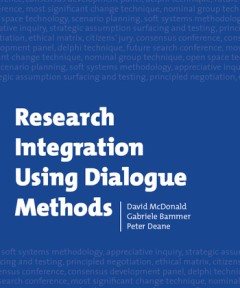
Research integration using dialogue methods
Research on real-world problems—like restoration of wetlands, the needs of the elderly, effective disaster response and the future of the airline industry—requires expert knowledge from a range of disciplines, as well as from stakeholders affected by the problem and those in a position to do something about it. This book charts new territory in taking a systematic approach to research integ…
- Edition
- -
- ISBN/ISSN
- 9781921536755
- Collation
- ix, 165p. : ill.
- Series Title
- -
- Call Number
- 001.4 MCD r
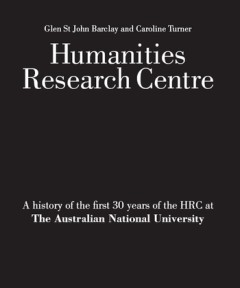
Humanities Research Centre : a history of the first 30 years of the HRC at th…
Humanities; Research; History
- Edition
- -
- ISBN/ISSN
- 9789751229830
- Collation
- xiii, 400p. : ill.
- Series Title
- -
- Call Number
- 001.307119471 BAR h
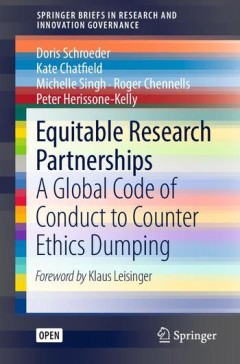
Equitable research partnerships : a global code of conduct to counter ethics …
This open access book offers insights into the development of the ground-breaking Global Code of Conduct for Research in Resource-Poor Settings (GCC) and the San Code of Research Ethics. Using a new, intuitive moral framework predicated on fairness, respect, care and honesty, both codes target ethics dumping – the export of unethical research practices from a high-income setting to a lower- o…
- Edition
- -
- ISBN/ISSN
- 9783030157456
- Collation
- xix, 122p : ill,
- Series Title
- -
- Call Number
- 174.9 SCH e
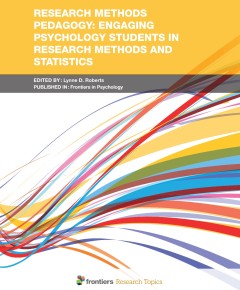
Research methods pedagogy : engaging psychology students in research methods …
Research methods and statistics are central to the development of professional competence and evidence based psychological practice. Furthermore, the ability to interpret and apply research findings contributes to the development of psychological literacy, the primary outcome of an undergraduate education in psychology. Despite this, many psychology students express little interest in, and in s…
- Edition
- -
- ISBN/ISSN
- 9782889450107
- Collation
- 102p. : ill.
- Series Title
- -
- Call Number
- 150.72 RES r

Chapter 4 preschool education
"The Routledge Handbook of Translation and Education will present the state of the art of the place and role of translation in educational contexts worldwide. It lays a sound foundation for the future interdisciplinary cooperation between Translation Studies and Educational Linguistics. By adopting a transdisciplinary perspective, the handbook will bring together the various fields of schol…
- Edition
- -
- ISBN/ISSN
- 9780367854850
- Collation
- 64-80p.: ill.
- Series Title
- -
- Call Number
- 418.02 COR c
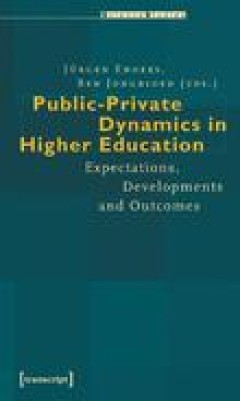
Public-private dynamics in higher education: expectation, developments and ou…
Worldwide, scholarship and policy-making develop new ideas and models for the role of higher education and research in society and economy. This development points to changing relationships and boundaries between the public and private spheres in higher education including their public and private steering and funding, public-private partnerships between universities and firms, the rise of priv…
- Edition
- -
- ISBN/ISSN
- 9783899427523
- Collation
- 525p.: ill.
- Series Title
- -
- Call Number
- 378.04 END p
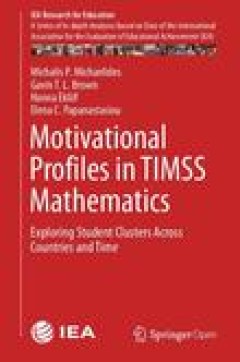
Motivational profiles in TIMSS mathematics
This open access book presents a person-centered exploration of student profiles, using variables related to motivation to do school mathematics derived from the IEA’s Trends in International Mathematics and Science Study (TIMSS) data. Statistical cluster analysis is used to identify groups of students with similar motivational profiles, across grades and over time, for multiple participating…
- Edition
- -
- ISBN/ISSN
- 9783030261832
- Collation
- xi, 144p.: ill.
- Series Title
- -
- Call Number
- 510.71 MIC m
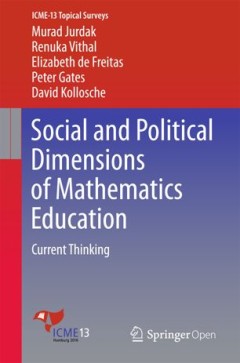
Social and political dimension of mathematics education: current thinking
This book examines the current thinking on five critical social and political areas in mathematics education. It focuses on material conditions in teaching and learning, and details features of social life and their influence on mathematics teaching, learning and achievement. Following an introduction, the first section addresses equitable access and participation in quality mathematics educati…
- Edition
- -
- ISBN/ISSN
- 9783319296555
- Collation
- vii, 37p.:
- Series Title
- -
- Call Number
- 370
 Computer Science, Information & General Works
Computer Science, Information & General Works  Philosophy & Psychology
Philosophy & Psychology  Religion
Religion  Social Sciences
Social Sciences  Language
Language  Pure Science
Pure Science  Applied Sciences
Applied Sciences  Art & Recreation
Art & Recreation  Literature
Literature  History & Geography
History & Geography